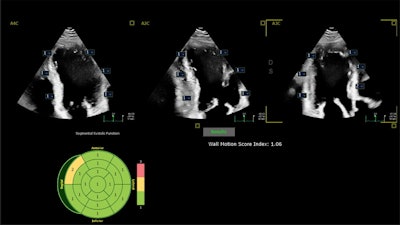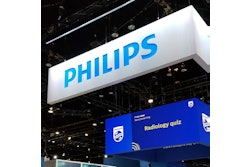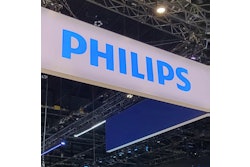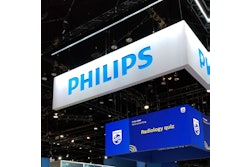Royal Philips has introduced new AI applications for its Epiq CVx and Affiniti CVx ultrasound scanners.
The applications, which include technology developed by recent Philips acquisition DiA Imaging Analysis, bring automated measurements, greater reproducibility, and improved workflows, according to the vendor.
New capabilities include automated measurements of left ventricle (LV) ejection fraction as well as LV strain analysis. In addition, a new AI tool can perform automated segmental wall motion scoring of the heart. Traditionally, wall motion has been subjectively assessed after visualization of the wall., according to the vendor.
“This can be an early independent indicator for coronary artery disease or cardiotoxicity and for a number of other disease states,” said Andy Lippman, senior product manager for cardiovascular ultrasound.
 New AI software from Philips provides automated wall motion analysis. Image courtesy of Philips.
New AI software from Philips provides automated wall motion analysis. Image courtesy of Philips.
Research describing the advantages of automation wall motion analysis will be presented at this month’s American Society of Echocardiography annual meeting.
What’s more, another application can provide automated 3D quantification of mitral regurgitation volumes, supporting clinicians in decision-making for patients with heart valve disease, according to Philips.
All of the new software has received U.S. Food and Drug Administration (FDA) 510(k) clearance.
The company said that it has also migrated its Dynamic Heart Model technology, which provides automated 3D volume analysis for the left atrium and LV, from Epiq to Affinity CVx.



















